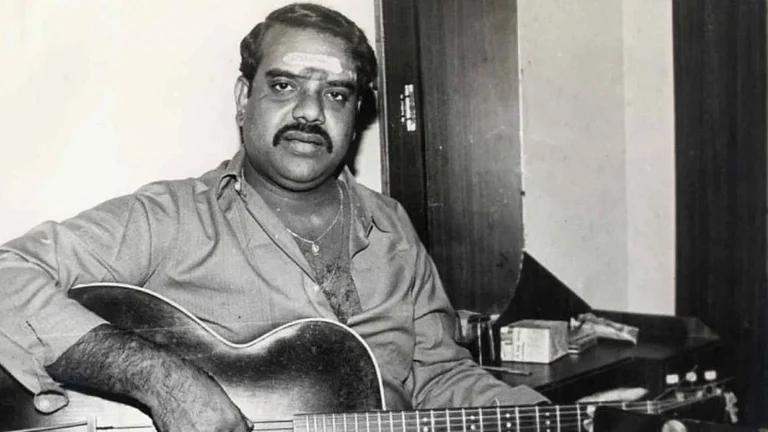The film business has always been attracting talent as well as entrepreneurs from all over India. This is equally true in the regional film industry and in the Hindi film industry.
There are reports that some new entrepreneurs are entering the film business in the production of films and, mainly, film distribution. This is not new. The film industry has always survived on money from outside.
No filmmaker who earns from his hit films ever ploughs his earnings back into future productions. It is either borrowed money, or money from new sources.
Those were the days of independent producers who made films that used to be then distributed by companies operating circuit-wise.
It was an arrangement that worked very well, just like any other business where a distribution firm passed from one generation to another. In the same manner, production companies carried on the business for years, hits or flops notwithstanding. It was normal for every filmmaker to have regular distributors film after film. If a film flopped, the producer compensated for it in the next film. It was a 'bhaichara' (brotherhood) kind of arrangement; sink or swim together.
The circuits boasted of dozens of distribution firms. Even small circuits such as Rajasthan, Central India (CI), and so on, counted many distribution firms. Where are they now, the traditional filmmakers and distributors?
How the film business is conducted changed dramatically when corporate backers of film production entered the scene. Some foreign production companies and a few local corporate houses thought they could do this business as well as the traditional distributors.
Filmmaking budgets went skyrocketing after the arrival of corporate houses. They were not used to thinking small. The filmmakers and the stars adapted instantly to the idea and the actors who charged in lakhs, started demanding and getting crores! The worst was yet to happen. The multiplex chains started deciding the release strategy of films. The traditional distributors, who knew the pulse of the people, were sidelined.
A film that did best by being released across 100-120 screens was suddenly spread to 500 screens and later to as many as 4,000 or more screens. These corporates and the multiplexes thought only in crores. Admission rates in the Rs 5 to Rs 10 range rose to Rs 100-plus to now anything from Rs 300 to Rs 1,600 and even Rs 2,200 per person.
The age-old idiom seems to be playing out: Killing the goose that lays the golden eggs!
The circuit-wise distribution trend changed to simultaneous all-India release of films. Some reputed production houses, which did not want the fate of their films to be in the hands of know-nothing marketing kids of multiplex and corporate houses, decided to hold back.
Yash Raj Films was one of them. They, instead, kept faith in their traditional distributors, giving them the rights to exploit their films on YRF's behalf or through their own offices in major circuits.
Pen, in league with Murudhar Films, is another old-time firm and Rajshri Pictures, which always had its distribution network across India, continues to function independently.
As things stand today, there are about a dozen all-India film distributors. And, to think that once upon a time, there were twice or thrice that number across all circuits.
Even in the new scheme of things, the martyrdom rate has been high. Those who joined the corporate-style new distribution system and closed shop are Eros, NH Studioz, Ashtavinayak, Dar Motion Pictures, Percept Pictures, Foxstar Studios, Mukta Arts and Cinekorn.
There is some good news, though. Some new investors are stepping in. And for the industry that has always survived on outside investments, it is most welcome news.
The Ullu group, which already has its presence in the OTT domain, now plans to enter film production as well as the all-India distribution business. The rank newcomer is Oswal, the knitwear clothing house from Punjab. A group of ex-staffers of Hollywood studios, who did business in India, soon folded up. Some of these ex-staffers have joined hands to launch a film distribution business on a pan-India basis.
The other two are PVR and Cinepolis. Though they are in the film exhibition business, both will acquire films for nationwide release. PVR was already in the business but its distribution activity was limited to the Delhi-UP circuit, which will now be expanded.
In these times, the new filmmakers who know nothing about the industry, especially distribution, and have yet to venture into making a film, end up contacting lone wolves who offer to book a desired number of screens, say 300 to 600, so the film can be released. Charges range anywhere from Rs 25 lakh to Rs 50 lakh for the favor!
The end is usually tragic for the newbie filmmaker. There are no buyers for their films and the exhibitors have scant interest in their films.
Pay Rs 99: Come One, Come All
This time, the cinema chains are not waiting for an occasion like the National Cinema Day, which they observed in the last two years. The footfalls at the cinemas are so scarce that they coined a new occasion, Cinema Lovers' Day on February 23 and 24. On these two days, all tickets were priced at Rs 99 for all shows. This offer, as usual, excluded the reclining- and premium-format sections.
What is different this time is that the days of the offer happened to be Friday and Saturday, when two new films were released: 'Crakk' and 'Article 370'.
Whenever such offers come, the public flocks to the cinemas. Yet, multiplex managements refuse to understand that it is the high admission rates they charge that deter people from coming to the cinemas.
Imagine, if they rationalized the ticket rates permanently, it would be like the good old days.


























